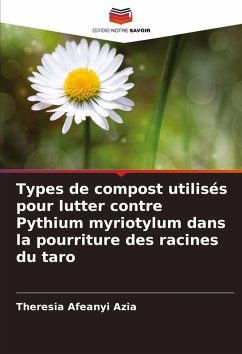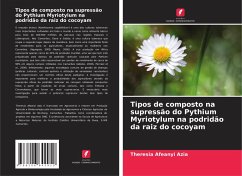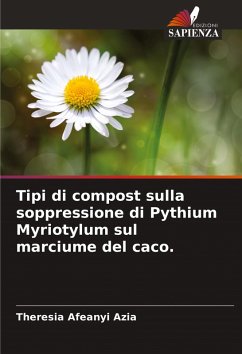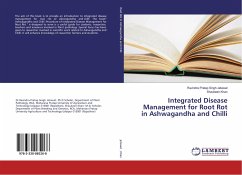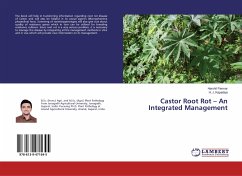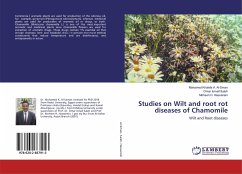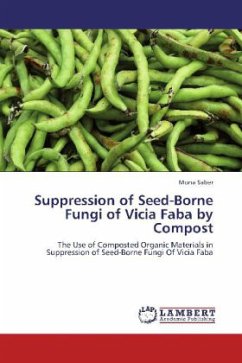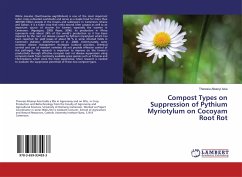
Compost Types on Suppression of Pythium Myriotylum on Cocoyam Root Rot
Versandkostenfrei!
Versandfertig in 6-10 Tagen
24,99 €
inkl. MwSt.

PAYBACK Punkte
12 °P sammeln!
White macabo (Xanthosoma sagittifolium) is one of the most important tuber crops cultivated worldwide and serves as a staple food for more than 400-500 million people in the tropics and subtropics. In Cameroon, Ghana and Gabon, it is a tuber crop that ranks second after cassava as well as an important source of income for farmers especially the women in Cameroon. (Agueguia, 2000; Reyes, 2006). its production in Africa represents only about 24% of the world's production as it has been impaired by the root rot disease caused by Pythium myriotylum which has been reported for yield losses of about...
White macabo (Xanthosoma sagittifolium) is one of the most important tuber crops cultivated worldwide and serves as a staple food for more than 400-500 million people in the tropics and subtropics. In Cameroon, Ghana and Gabon, it is a tuber crop that ranks second after cassava as well as an important source of income for farmers especially the women in Cameroon. (Agueguia, 2000; Reyes, 2006). its production in Africa represents only about 24% of the world's production as it has been impaired by the root rot disease caused by Pythium myriotylum which has been reported for yield losses of about 90 % in some infected fields in Cameroon (Adiobo, 2OO6,Perneel et al., 2006). Unfortunately, some common disease management strategies (cultural practises, chemical control and use of resistant varieties) do not provide effective control of this pathogen. The research is important to improve on the farmer's productivity through effective cocoyam root rot disease suppression using composts made from commonly available grass species such as Tithonia and Chromolaena which were the most suppressive. More research is needed to evaluate the suppressive potentials of these two compost types.



